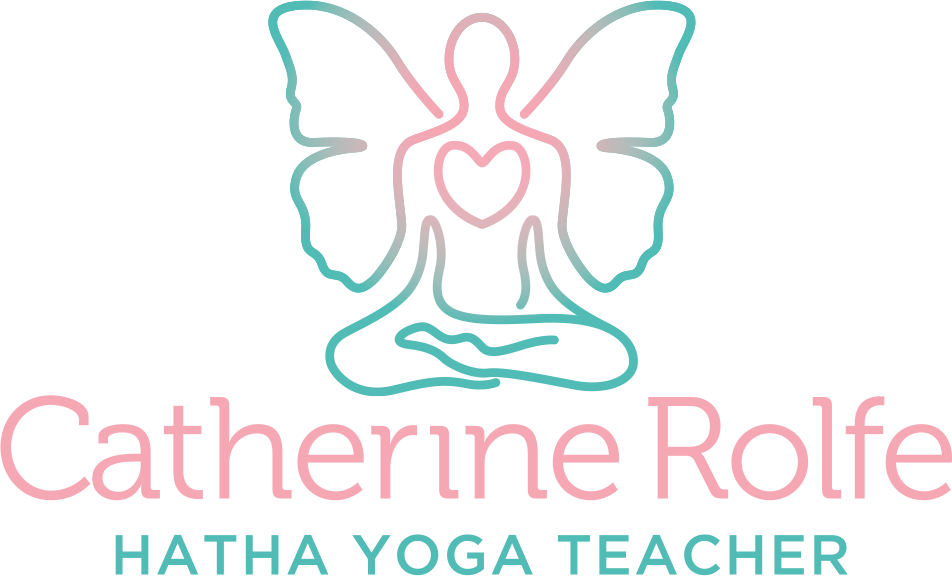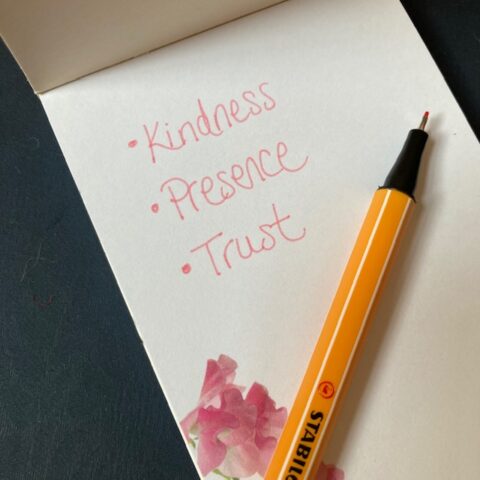Anyone that knows me will know that I am a huge fan of Dr Rangan Chatterjee’s work and his holistic approach to well-being. Since devouring his latest book, Happy Mind, Happy Life, from cover to cover, I am now digesting it more thoroughly, by working my way through the practices that it suggests will help you to become a calmer, happier you.
One of the first exercises Dr Chatterjee sets is that we look to redefine ourselves. He proposes that how we identify is pivotal to our happiness, but rather than identifying with our more usual societal driven labels, such as ‘teacher’ or ‘mother’, he asks that we instead define ourselves by our values.
Why is this important? Identifying with our labels can be problematic in more ways than one, advises Dr Chatterjee. Firstly, we may unconsciously take on society’s idea of how a ‘teacher’, or a ‘mother’ should be, leaving us potentially living out of alignment with our true selves, as we attempt to live according to how we perceive these such identities should live. In yoga philosophy terms, we can relate this to the affliction of asmita, or ‘I-am-ness’, where through creating a self that we think is us, but is not actually us, we run the risk of becoming trapped within projections of our life.
It is our attachment to these labels, however, that is perhaps even more laden with potential for unhappiness. As both yogic and Buddhist philosophy suggests, attachment, or raga, is troublesome! If our whole sense of self is integrated with our roles, and a certain sense of what they involve, what happens when for example, it comes to retirement, or children leaving home and so on? Our strong attachment to these labels, like all attachment, is ultimately fragile, and therefore inherently leaves us feeling vulnerable to their potential loss. In the words of B.K.S. Iyengar:
… no one is a mother or businessman or schoolteacher all the time, all their lives. These are temporary states.’
Identifying with our values instead, starts the process of connecting us to something deeper inside ourselves, a more solid part of ourselves and something more aligned with what Buddhism calls our basic goodness. In Dr Chatterjee’s terms, it’s his belief that this redefinition of our personal identity will help us to build our happiness and health in the long run. For him, this has meant a shift from defining himself as a doctor or a father, to simply as a curious human. As he says:
‘This identity holds true for me in every role I play in life and works no matter what situation I find myself in. Understanding this has given me a deep sense of freedom and peace.’
What then, having looked at Dr Chatterjee’s ‘identity menu’ of suggestions, did I decide that I truly value? Like him, I have chosen values which resonate for me whatever I am doing and whatever arises.
My three selected values are:
Kindness. Found in Yoga as ahimsa (the practice of non-violence), seen in Buddhism in various guises, including the practice of Maitri (loving-kindness), and now put under the lens of modern science – see the work of Dr David Hamilton and Dr Kristin Neff for starters – kindness is perennial. Having this value in mind when things feel tough has led me to ask myself – what would kindness say to me right now? – and – how can I show up as kind in this moment? Wherever and however I find myself, the situation can always be improved by connecting to kindness, whether that’s for myself or others, and ultimately, both.
Presence. Is it just me, or is being present a constant endeavour? Whether it’s the pull of a mobile phone, worrying about the past or future, or even more innocuous daydreaming, the reminder to actually be here now is a welcome one. Applying this value has so many permutations. How can I be more present with the person or people I’m with, so that I am truly here with them? How can I be more present in my body? And the big one for me – how can I be present with what I am feeling right now, with whatever arises, sitting with acceptance rather than aversion, particularly when it’s feelings I don’t especially like? Presence for me is the constant practice of building awareness – being present, noticing every time I am somewhere else and then returning.
Trust. It took me time to alight on a third value. Nothing seemed quite right until I heard Rachel Botsman’s definition of trust on The High Performance Podcast and it stopped me in my tracks:
‘Trust is a confident relationship with the unknown.’
Yes, I thought, this is something I truly value for sure. Because we all live with the unknown every day, we just don’t like to think about it. And whether it’s the small unknowns – how will this conversation turn out? – or the big unknowns – will I make it to the end of today? – as Ruby Wax puts it:
‘The faster we make friends with the certainty of uncertainty, the freer and happier we’ll be.’
I found this hard for a long time and I have by no means perfected it now. But life has profoundly demonstrated its inherent unpredictability to me, and so it has been in my practice for some time now to aspire to live, as Pema Chodron teaches, beautifully with uncertainty and change.
This is what Botsman’s definition of trust speaks to in me. When I ask myself – How can I bring trust into this moment? How can I embody that confident relationship with the unknown right now? What would that look like? – I can feel parts of me internally sigh and let go; it’s a shift that’s palpable. In Botsman’s words again:
Trust is ‘a remarkable force that allows us to overcome uncertainty, to be vulnerable, to try something new or do something differently.’
Now, just to be super clear, I selected these qualities because I value them, not because I am their best exponent, by a long way! But one of the things I love about this exercise, is that having selected these values, I find I can practice working towards them every day. And I’ve been surprised how soothing and reassuring I’ve found this. It’s like having found a rudder I didn’t know I’d been missing. An internal north point.
So how does this link to my yoga practice? To paraphrase Jon Kabat-Zinn, because wherever I go, there I am, my time on my mat is a microcosm of how I live my life. Every time I step onto the mat, I am practicing how and who I want to be. So my redefined identity follows me here too. I bring awareness to my internal monologue, and turn it towards kindness. Through my meditation practice, I foster kindness for all beings. I observe how many times my mind leaves my mat and return it to the present experience, over and over. I practice the art of being present with whatever feelings and sensations arise, without judgement. And I endeavour to make friends with the unknowns of my practice – that whatever the outcome, be it tangible or not, that I can trust the process of coming to my mat, day after day.
Dr Chatterjee says of this exercise of redefining yourself:
‘This is going to be a lifelong journey. All we are looking for is increased awareness and steady improvement.’
I hope by sharing my experiences here that I have inspired you to start. What values will you choose? In the spirit of yoga, here are some qualities inspired by some of the yamas and niyamas:
- Kindness
- Truthfulness
- Generosity
- Contentment
- Determination
- Self-awareness
- Acceptance
- Devotion
Once selected, it can be helpful to write your values down somewhere you will see them regularly – a post-it note on your mirror perhaps. Revisit them regularly to check they still resonate with you and make adjustments as feels right.
May you enjoy the process of redefining yourself, of connecting back to your essential self, beyond your labels. And may you come with an open heart to each moment of your life – on and off the mat – as an opportunity to practice being more you.
Further related reading and listening
As well as the books and resources linked to in this blog, I’d also really recommend Jay Shetty’s book Think Like A Monk for another perspective on of stepping into our own identity and consciously, intentionally creating our own values. Short on time? Then check out this bitesize podcast episode which includes Jay’s value audit exercise.
© Catherine Rolfe Hatha Yoga Teacher 2022
Let me know how you get on with this exercise by clicking here. I’d love to hear from you 🙂

